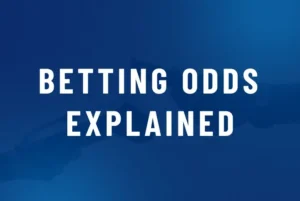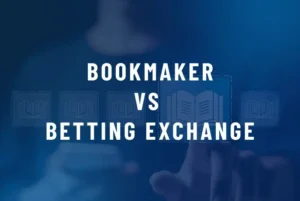Value Betting Explained – Everything You Need To Know
Ever wondered why some bettors win more often over time? The answer isn’t luck, it’s value betting. This guide explains how spotting overpriced odds can turn betting into a smarter, more calculated game. You’ll learn what value betting means, how it works, and how to identify it in real-world UK sports examples.
Introduction – What Does “Value Betting” Actually Mean?

If you’ve ever heard punters or professional gamblers talk about “value betting,” you might wonder what all the fuss is about. Isn’t betting just about predicting who’ll win a match?
Not quite.
The secret to long-term profit in betting isn’t only guessing the winner – it’s identifying bets where the odds offered by a bookmaker are higher than the true probability of the outcome. That’s the essence of value betting.
In this guide, you’ll learn:
- What value betting means in plain English
- How it works with practical, UK sports examples
- Why bookmakers “get it wrong” sometimes
- How to find value bets yourself
- Pitfalls and common mistakes to avoid
Whether you’re a casual punter or an aspiring sharp bettor, understanding value betting is a game-changer for betting smarter rather than simply betting more.
The Core Concept – Probability vs. Odds
Before we dive into value betting, let’s lay the groundwork by understanding how odds reflect probability.
How Bookmakers Set Odds
Bookmakers offer odds for every possible outcome. These odds represent how much you’ll win if your bet comes in – but they also imply the bookmaker’s estimate of each outcome’s chance of happening. Curious how betting odds work – check out our Betting Odds for Beginners guide.
For example:
- Odds of 2.00 (evens) mean the bookie believes there’s a 50% chance of that outcome.
- Odds of 3.00 imply a 33.33% chance.
How do we calculate that? It’s simple:
Probability (%) = (1 / Decimal Odds) × 100
So:
- Odds of 2.50 → Probability = (1 / 2.50) × 100 = 40%
What’s a Value Bet?
A value bet occurs when:
The bookmaker’s odds imply a lower probability than the true chance of the event happening.
In other words, the bookmaker has underestimated the likelihood of an outcome – and you’re getting higher odds than you “should.”
Let’s bring this to life with a real-world UK football example.
Value Betting Example – Premier League Match
Suppose Arsenal are playing Brighton in the Premier League.
- Bookmaker odds for an Arsenal win: 2.10
- Implied probability = (1 / 2.10) × 100 = 47.62%
After your own research – looking at form, injuries, head-to-head records – you estimate Arsenal’s true chance of winning at 55%.
If your estimate is correct, the “fair” odds should be:
Fair Odds = (1 / True Probability)
= (1 / 0.55)
≈ 1.82
The bookmaker is offering 2.10 – way above the “fair” price of 1.82. That’s a value bet.
Why Do Bookmakers Offer Value?
Bookmakers are clever, but they’re not infallible. There are several reasons why value can appear:
1. Market Pressure and Weight of Money
Sometimes, popular teams attract heavy betting purely because of fan loyalty, rather than true statistical chances. For example, Manchester United often attracts large stakes from fans. Bookmakers may shorten United’s odds even if their true chances are slimmer, creating value on their opponents.
2. Bookmaker Errors
Oddsmakers are human. Sometimes they:
- Enter the wrong odds by mistake
- Misinterpret team news
- React slowly to injury updates
These errors don’t last long, but they create brief windows of value.
3. Special Events or Promotions
Around big events like the Grand National or Cheltenham Festival, bookies may boost odds to attract new customers. Occasionally, these boosts exceed the true odds, creating value.
The Maths Behind Value Betting
So how can you tell if a bet has value?
Here’s the core formula:
Expected Value (EV) = (True Probability × Decimal Odds) – 1
If EV is positive, the bet has value.
Using our Arsenal example:
EV = (0.55 × 2.10) – 1
= 1.155 – 1
= 0.155 → +15.5% expected value
A +15.5% EV means that, over many similar bets, you’d expect a return of £15.50 profit for every £100 staked.
Why Value Matters Over the Long Term
Here’s the key: value betting is about the long game.
No single bet is guaranteed to win – even the best value bet can lose. But over hundreds or thousands of bets, if you’re consistently betting when the odds are higher than the true chance, you’ll statistically end up ahead.
Imagine tossing a biased coin that lands on heads 55% of the time. If someone pays you even money (2.00) every time you bet heads, you’d eventually profit because you’re betting with value.
Finding Value Bets – How It’s Done
Let’s get practical. How do value bettors actually spot these opportunities?
1. Statistical Models
Many serious punters build statistical models using spreadsheets, machine learning, or software tools. These models:
- Analyse past results
- Factor in variables like injuries, weather, team news
- Predict true probabilities
Example: A model might predict Chelsea’s chance of winning based on home advantage, xG (expected goals), and historical data against the same opponent.
2. Comparing Bookmakers’ Odds
Different bookmakers offer different odds for the same event. By scanning multiple bookies, you may find outliers offering significantly higher odds.
Example:
- Most bookies price Arsenal at 1.80
- One bookie offers 2.10
That difference can be a sign of value.
3. News and Information Advantage
Sharp punters monitor:
- Injury updates
- Team news
- Manager press conferences
- Insider insights
Being first to react can unlock value before bookmakers adjust their odds.
4. Value Betting Software
Tools like RebelBetting’s value betting software scan thousands of odds automatically, highlighting value bets based on statistical models. However, remember:
- Software helps find potential value
- You should still assess whether the bet makes sense
Practical Tips for Value Betting
Start Small
Don’t risk big sums immediately. Test your estimates on paper to see if your approach works before staking real money.
Keep Records
Track:
- Your stakes
- Odds taken
- True probabilities
- Profit and loss
This helps you spot patterns – and whether your value assumptions are correct.
Avoid Emotional Betting
Value betting relies on cold, statistical reasoning – not gut feeling or fan bias. Betting on your favourite team “just because” usually kills value.
Manage Your Bankroll
Even profitable value bettors face losing streaks. Use a staking plan (e.g. flat stakes or Kelly Criterion) to protect your bankroll and avoid going bust. More about this on our Bankroll Management Tips guide.
Common Mistakes in Value Betting
Overestimating Your Edge
Beginners often overestimate how accurate their probability estimates are. Be cautious, especially when dealing with sports that have unpredictable variables.
Chasing Losses
If you hit a bad run, don’t bet bigger to “win it back.” Stick to your plan.
Betting on Too Few Events
Value betting needs volume. The edge emerges over hundreds or thousands of bets. A small sample won’t prove much.
Ignoring Account Restrictions
Winning too often can get your account limited or closed by some bookmakers. Spread your bets across multiple bookies and stake modest amounts to stay under the radar.
Real-World Value Betting – A Mini Case Study
Imagine you spot the following in the Cheltenham Festival:
- Horse: Shishkin
- Bookmaker odds: 6.00
- Your estimated true odds: 4.50 (implying ~22.22% chance)
Calculation:
EV = (0.2222 × 6.00) – 1
= 1.3332 – 1
= 0.3332 → +33.32% expected value
This means, over time, you’d expect a profit of £33.32 per £100 staked on similar bets. But remember: the horse can still lose on the day – no value bet is a guaranteed win.
Value Betting vs. Matched Betting
A frequent question in the UK betting community is:
Is value betting the same as matched betting?
No, they’re different.
- Matched betting uses free bets and promotions to lock in risk-free profit.
- Value betting involves betting your own money when the odds are higher than the true probability.
Matched betting is low-risk but limited in scope. Value betting carries risk, but offers potential long-term profit without relying on bonuses.
Final Thoughts – The Value Betting Mindset
Value betting isn’t about gambling hunches or chasing massive wins. It’s about:
- Understanding how odds reflect probability
- Identifying when bookmakers have mispriced the market
- Staying patient and disciplined over hundreds of bets
If you’re serious about betting as a long-term endeavour rather than entertainment, learning how to spot value could be the most important skill you ever acquire.
Where to go next on our site
- Our Betting Glossary and betting terms explained for the UK
- Best betting sites in the UK – tested and verified reviews of the best bookmakers in the UK,
- Best free bets offers – clear analysis of self-tested welcome offers for new customers,
- Football betting guides – bookmakers reviews on football and soccer betting.
Safer‑gambling resources
- GAMSTOP self‑exclusion – register free to block online gambling accounts. (Gambling Commission)
- National Gambling Helpline (GamCare) – 0808 8020 133, 24/7. (GamCare)
- NHS: Help for problems with gambling – official support and clinic info. (nhs.uk)
- GambleAware – advice, tools and signposting to treatment. (GambleAware)
Compliance note on scope: This guide focuses on Great Britain under the Gambling Act 2005, regulated by the UK Gambling Commission. If you’re in Northern Ireland, check local arrangements before you bet.
This guide was created with AI assistance and reviewed by a human editor to ensure accuracy and clarity. It is intended for informational purposes only and does not encourage gambling.
FAQs About Value Betting
Is value betting legal in the UK?
Yes – it’s perfectly legal to bet wherever you find value, as long as you’re over 18 and using licensed UK bookmakers.
Can you really profit from value betting?
Yes, if your estimates of true probability are accurate and you place enough bets over time. But it’s not easy – it takes discipline, maths, and a clear mind.
Do bookmakers ban value bettors?
Some bookmakers may restrict or limit your account if they see you’re consistently beating their odds. That’s why many value bettors use multiple accounts and moderate stakes.
Can casual punters try value betting?
Absolutely. Even placing occasional value bets with small stakes is a smart habit. Just remember: the edge only reveals itself over the long term.






